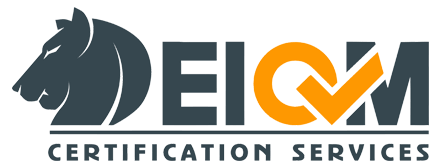Table of contents
What Is QA? The Definitive Answer
QA involves careful planning, establishing sound processes, continuous monitoring through audits, and employing statistical methods like SPC and Total Quality Management.
✅ Key Differences: QA vs QC
-
QA: process-oriented; focuses on “prevention”.
-
QC: product-oriented; emphasizes “detection” through testing and inspection
Why QA Matters: Benefits That Drive Growth
-
Customer Confidence & Satisfaction
A strong QA approach gives your customers peace of mind. Zendesk reports 77% of teams link QA with higher satisfaction. -
Reduced Errors & Costs
Catching issues early through QA processes like statistical control or failure testing is far cheaper than post-launch fixes. -
Regulatory Compliance & Reputation
For ISO-driven industries, QA ensures you meet global standards like ISO 9001:2015—and builds your credibility. -
Continuous Improvement
QA’s feedback loops—from audits, customer feedback, and SPC—fuel ongoing excellence
Core QA Methodologies: Tools That Make a Difference
Understanding what is QA also means knowing how to implement it. Here are the leading QA methodologies:
-
Failure Testing
Stress-testing products or software to reveal weaknesses early . -
Statistical Process Control (SPC)
Using data and control charts (originated by Shewhart in the ’20s) to monitor production variation. -
Total Quality Management (TQM)
A holistic, culture-based strategy emphasizing data-driven continuous improvement.
More niche QA types include:
-
Software QA (SQA): focuses on process and code standards using ISO 25010, CMMI, etc.
-
Supplier QA: ensures vendors meet your quality benchmarks.
-
Regulatory QA: aligned with sector-specific regulations (e.g., pharmaceuticals, food safety).
Who’s Doing QA? Competitive Analysis
TechTarget’s “What is Quality Assurance (QA)?”
-
Strengths: deeply covers ISO 9000, SPC, TQM—strong on definitions and methods .
-
Gap: less customer-facing, fewer use cases or business benefits.
ASQ & Tech Standards Sites
-
Strengths: detailed QA vs QC definitions, standards, and roles.
-
Gap: very technical, lacking accessible language for non-experts.
Zendesk on QA in Service
-
Strengths: great real-world stats, customer service angle .
-
Gap: service-specific, less on ISO accreditation and cross-industry needs.
LambdaTest & Wrike
-
Strengths: beginner-friendly guides, practical QA planning tools .
-
Gap: minimal ISO/QMS certification perspective.
Why EIQM Cert? QA with ISO Expertise
At EIQM Cert, our focus isn’t just QA theory—we’re guiding clients to full ISO certification. Here’s how we go above and beyond industry competitors:
-
🚀 End-to-End ISO Support: We help implement QA systems aligned with ISO 9001:2015, guiding you through documentation, audits, and certification.
-
🛠 Hands-On Tools & Training: From SPC and process mapping to internal audits—our team equips you with resources and training for sustained excellence.
-
🏭 Industry-Relevant Applications: Whether in manufacturing, software, healthcare, service, or food safety, we tailor QA to your sector.
-
🌍 Local German & Global Alignment: Based in Germany? We ensure compliance with European and international standards.
Conclusion
Now you know what is QA—not just a buzzword, but a strategic necessity. From prevention-oriented processes to ISO certification, QA shapes success. And with EIQM Cert, you don’t just get advice—you achieve compliance, capability, and credibility.
📞 Ready to transform? Reach out for a free consultation and discover how our customized QA solutions can add value to your organization.


Add a Comment